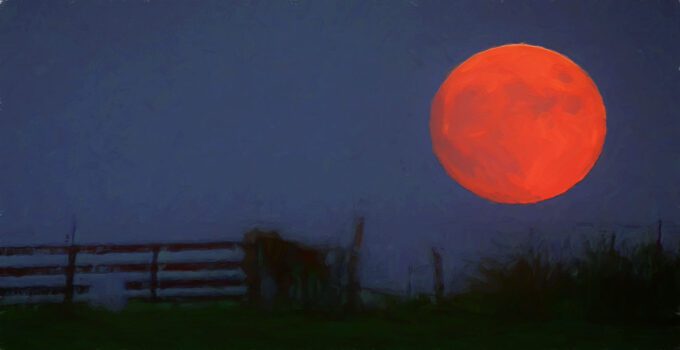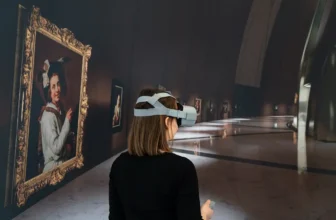The Mystique and Truth Behind Full Moon Behavior
It was late one crisp October night when the village of Elden’s Hollow fell eerily in silence. The moon had risen, full and glowing with a golden hue that bathed the cobblestone streets in a ghostly light. Windows were shuttered tightly. Dogs barked into the dark as if seeing shadows that weren’t there. Old Mrs. Fairburn clutched her rosary a little tighter. The townsfolk had long whispered that strange things happened during a full moon, and tonight, they would once again be proven right.
The full moon has captivated the human imagination for millennia. From ancient folklore to modern psychology, it has been blamed, or credited, for everything from madness and insomnia to spiritual awakenings and transformation. But what is the truth? Do full moons truly affect human behavior, or is it merely a cosmic coincidence tangled in myth?
Let’s walk through the glow and shadow of the full moon, peeling back the layers of mystery, science, and spirit.
Do Full Moons Affect Human Behavior?
The word “lunatic” stems from luna, the Latin word for moon. Even in Roman times, it was believed that the moon had the power to drive people mad. In medieval Europe, it was widely assumed that full moons could provoke seizures, bouts of aggression, or sudden outbursts of strange behavior. Hospitals and jails reportedly braced for chaos when the full moon rose.
But is there scientific evidence to back this up?
Modern research presents a mixed bag. Some studies have shown no statistically significant increase in crime, mental health emergencies, or hospital admissions during full moons. Others have found subtle correlations, slight upticks in ER visits, psychiatric episodes, and even animal bites. For example, a study published in the Journal of Affective Disorders found a small increase in mood disorders around the time of the full moon. Another from the American Journal of Psychiatry noted more disturbed behavior in some institutionalized populations.
So what’s happening here?
One theory is that the brightness of the full moon disrupts sleep. A 2013 study in Current Biology showed that people took longer to fall asleep and had less deep sleep during the full moon, even in a completely dark room. Less rest means more irritability, reduced cognitive control, and higher emotional reactivity. Could the moon’s light be quietly stirring restlessness across the population?
Why Do People Behave Strangely During a Full Moon?
Imagine the full moon as a spotlight, not just illuminating the night, but our inner lives. For centuries, poets, mystics, and spiritual teachers have likened the full moon to a cosmic mirror, a time when the subconscious rises, when hidden emotions bubble to the surface.
Many believe the full moon acts as a natural amplifier.
Have you ever noticed people being more emotional, more reactive, or more impulsive during the full moon? Arguments flare. Relationships feel strained or electrified. People make bold decisions, take risks, or find themselves ruminating late into the night. Astrologically, the full moon is a time of culmination, intensity, and emotional release.
In spiritual circles, the full moon is believed to bring things to light, literally and metaphorically. If you’ve been suppressing something, ignoring your intuition, or burying a desire or fear, the full moon can act as a trigger, urging you to confront it.
It’s not that people behave “strangely”, it’s that they behave honestly. The masks slip. The shadows dance.
The Secret of the Full Moon: What Lies Beyond the Light
So what is the secret of the full moon?
Perhaps it’s this: the full moon reveals. It doesn’t make us crazy. It shows us what’s already there.
The full moon marks the halfway point in the lunar cycle, a moment of peak energy, visibility, and reflection. In many traditions, it’s a time to harvest the results of your intentions set during the new moon. Whatever seeds you planted, consciously or unconsciously, come to bear fruit, or come back to haunt you.
There’s a reason witches, healers, and ancient priests conducted rituals under the full moon. Its power to charge water, cleanse crystals, enhance intuition, and open energetic gateways is legendary. Some believe the gravitational pull of the moon not only affects tides but subtly shifts the water in our bodies, after all, we’re 60% water. Is it really so far-fetched to think we might be influenced by lunar magnetism?
Many esoteric traditions suggest that the veil between the physical and spiritual realms is thinner during a full moon. Dreams become more vivid. Synchronicities more frequent. The Universe seems to whisper more clearly.
That’s the moon’s secret: it doesn’t cause chaos, it clarifies. It doesn’t hide, it exposes.
Spiritual Things That Happen on a Full Moon
Across cultures and belief systems, the full moon is viewed as a sacred time for spiritual growth and transformation. Here’s what spiritual practitioners often experience:
1. Emotional Release
The full moon is a potent time for letting go. Many people perform “release rituals,” where they write down what no longer serves them, old fears, toxic habits, painful memories, and symbolically burn or bury the list. There’s power in this act of purification, amplified by lunar energy.
2. Heightened Intuition
Psychics, mediums, and empaths report an increase in intuitive hits during full moons. You might find your gut feelings are sharper, or that insights come more effortlessly. Dreams may be more symbolic or prophetic.
3. Ritual and Ceremony
From pagan esbats to Wiccan full moon circles to modern wellness moon baths, humans have long celebrated lunar power. Charging crystals, meditating in moonlight, or performing gratitude ceremonies can align your energy with lunar rhythms.
4. Energetic Sensitivity
If you’re energetically sensitive, you might feel overstimulated, exhausted, or hyper-alert around the full moon. It’s as if your soul is standing closer to the edge of the veil, exposed to more cosmic noise.
5. Manifestation Magic
While new moons are ideal for setting intentions, the full moon is believed to bring manifestation energy to a peak. Some people claim long-held desires suddenly materialize, or at least, move significantly forward, during this time.
Do Strange Things Really Happen During a Full Moon?
Ask a police officer, an ER nurse, a paramedic, or a teacher, many will tell you yes, something feels different during a full moon. More accidents. More arguments. More outbursts.
Some anecdotes are almost too bizarre to ignore:
A quiet town suddenly sees a spike in thefts or car crashes.
Patients in psychiatric units become agitated or delusional.
Wildlife becomes more active, wolves, cats, and even fish alter their behavior.
Children sleep poorly or become unusually excitable.
Skeptics call it confirmation bias, we remember the strange things that happen during full moons because we’re primed to expect them. But what if it’s not just superstition? What if we are tuning in to an ancient, lunar rhythm?
In truth, we may never fully untangle the science from the symbolism. But the stories, generation after generation, continue to pour in like moonlight through an open window.
What NOT to Do on a Full Moon
While full moons can be magical, they can also be overwhelming. Here are a few things you might want to avoid when the moon is full:
1. Don’t Start New Projects
The full moon is about culmination, not initiation. Starting something new can feel rushed or chaotic. Better to reflect, assess, or complete rather than launch.
2. Avoid Emotional Confrontations
Emotions run high during a full moon. If possible, postpone difficult conversations or conflicts, you might say more than you mean or misinterpret someone else’s feelings.
3. Don’t Ignore Your Body
Restlessness, insomnia, or fatigue are common during full moons. Don’t push yourself. Hydrate, meditate, and listen to what your body needs.
4. Don’t Suppress Your Emotions
Instead of pushing your feelings down, find healthy ways to express them. Journal. Dance. Cry. The moon invites release, not repression.
5. Avoid Chaos and Overstimulation
This isn’t the time to overload your schedule or immerse yourself in loud, chaotic environments. If you’re sensitive, protect your energy.
The Final Illumination
As the full moon reaches its peak in the night sky, it casts more than just light, it casts a spell. Whether you’re a skeptic or a mystic, there’s something undeniably different about full moon nights. The air feels charged. The soul feels stirred. The world, for a moment, feels closer to the dreamworld.
Maybe the moon doesn’t make us strange, it gives us permission to be. To be raw. To be real. To be reflective. To be wild.
The people of Elden’s Hollow would agree. As the moon waned and dawn began to warm the edges of the horizon, the village stirred from its night of unease. The dogs stopped barking. Mrs. Fairburn unlocked her door. And the whispers of the night gave way to a knowing silence.
They couldn’t explain what had happened. But they knew, as they always had, that when the full moon rises, something deep and ancient stirs within us all.
So the next time the full moon finds you, don’t just glance up and move on. Pause. Feel. Reflect. What is being revealed to you? What truth is rising like the tide?
Because the full moon isn’t just a phase, it’s a message.
And it’s waiting for you to listen.




